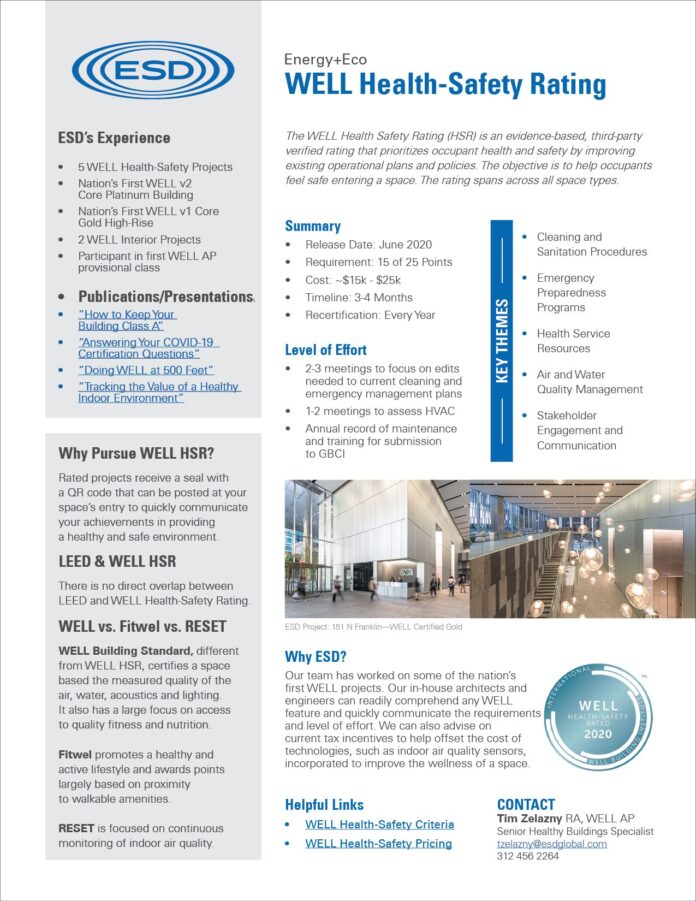Eating a healthy, balanced diet is essential for maintaining overall well-being, promoting weight management, and reducing the risk of chronic diseases. In this blog post, we will explore the importance of healthy eating, the key components of a balanced diet, and practical tips to help you achieve your nutrition goals.
Introduction
Proper nutrition is the foundation for a healthy lifestyle. By making informed choices about the foods we consume, we can nourish our bodies, boost our energy levels, and support our long-term health. In this comprehensive guide, we will delve into the various aspects of healthy eating, equipping you with the knowledge and strategies to make sustainable changes and improve your overall well-being.
Importance of Healthy Eating

Understanding the Role of Nutrition
Nutrition plays a crucial role in our physical and mental well-being. The food we consume provides the necessary vitamins, minerals, and macronutrients (carbohydrates, proteins, and fats) that our bodies require to function optimally. Proper nutrition supports the growth, repair, and maintenance of our cells, tissues, and organs, as well as the proper functioning of our immune system, digestive system, and cognitive processes.
Preventing Chronic Diseases
A balanced and nutritious diet has been shown to reduce the risk of various chronic conditions, such as heart disease, type 2 diabetes, certain types of cancer, and obesity. By focusing on whole, unprocessed foods and limiting the intake of added sugars, unhealthy fats, and excessive salt, we can significantly improve our overall health and reduce the likelihood of developing these debilitating diseases.
Promoting Weight Management
Maintaining a healthy weight is essential for overall well-being, and a balanced diet plays a crucial role in this endeavor. By consuming the right balance of macronutrients and controlling portion sizes, individuals can achieve and maintain a healthy weight, which in turn reduces the risk of weight-related health problems, such as diabetes, high blood pressure, and joint problems.
Balanced Diet

A balanced diet is a key component of healthy eating, as it ensures that our bodies receive the necessary nutrients in the appropriate proportions. To achieve a balanced diet, it is essential to focus on the following:
Macronutrient Balance
Macronutrients are the primary components of our diet, providing the body with energy and essential building blocks. To maintain a balanced diet, it is recommended to consume a mix of carbohydrates, proteins, and healthy fats in appropriate proportions:
- Carbohydrates: 45-65% of total daily caloric intake
- Proteins: 10-35% of total daily caloric intake
- Fats: 20-35% of total daily caloric intake
It is important to choose complex carbohydrates, lean proteins, and unsaturated fats to ensure a balanced and nutritious intake.
Micronutrient Diversity
Micronutrients, such as vitamins and minerals, are essential for various bodily functions and overall health. To ensure adequate micronutrient intake, it is crucial to consume a wide variety of fruits, vegetables, whole grains, and other nutrient-dense foods. This diversity helps to provide the body with a comprehensive range of essential vitamins, minerals, and antioxidants.
Hydration
Proper hydration is a crucial component of a balanced diet. Water plays a vital role in maintaining various bodily functions, including temperature regulation, nutrient transportation, and waste removal. It is recommended to consume at least 8 cups (64 ounces) of water per day, with adjustments based on individual needs, activity levels, and environmental factors.
Portion Control
Portion control is a key aspect of healthy eating, as it helps to maintain a balance between caloric intake and energy expenditure. Overeating, even of healthy foods, can lead to weight gain and associated health risks. Here are some strategies for effective portion control:
Understanding Serving Sizes
Familiarizing yourself with standard serving sizes for different food groups can help you make more informed choices and avoid overconsumption. This information can be found on food labels or through various resources, such as the USDA’s MyPlate guidelines.
Plate Portioning
Use a smaller plate (around 9-10 inches in diameter) and aim to fill it with a balanced distribution of fruits, vegetables, whole grains, lean proteins, and healthy fats. This visual cue can help you control your portion sizes and maintain a healthy caloric intake.
Mindful Eating
Practicing mindful eating, which involves being present and attentive during the eating process, can help you recognize feelings of hunger and satiety, and prevent overeating. This includes taking the time to chew your food thoroughly, savoring each bite, and being aware of your body’s signals.
Meal Planning
Effective meal planning is a valuable strategy for maintaining a balanced diet and ensuring consistent healthy eating habits. Here are some tips for successful meal planning:
Grocery Shopping and Meal Prep
Plan your meals in advance and create a grocery list that aligns with your meal plan. Dedicate time each week to prepare and portion out healthy meals and snacks, making it easier to stick to your nutritious choices throughout the week.
Meal Prepping Techniques
Utilize various meal prepping techniques, such as batch cooking, freezing portions, and making use of slow cookers or Instant Pots, to simplify the meal preparation process and ensure you have healthy options readily available.
Incorporating Variety
Incorporate a variety of nutrient-dense foods into your meal plan to ensure you are meeting your body’s diverse nutritional needs. This can include experimenting with new recipes, trying different cuisines, and exploring a wide range of fruits, vegetables, whole grains, and lean proteins.
Healthy Snack Options
Snacking can be a valuable part of a balanced diet, as it can help maintain energy levels, curb hunger, and provide additional opportunities to consume nutrient-dense foods. Here are some healthy snack options to consider:
Fruit and Vegetable-Based Snacks
Fresh fruits and vegetables, such as apples, carrots, bell peppers, and cherry tomatoes, make for excellent, nutrient-rich snack choices. They are high in fiber, vitamins, and minerals, and can be enjoyed on their own or paired with a small serving of a healthy dip or nut butter.
Nut and Seed-Based Snacks
Nuts and seeds, such as almonds, walnuts, pumpkin seeds, and chia seeds, provide a satisfying combination of protein, healthy fats, and fiber. They make for a portable and nutritious snack option.
Dairy-Based Snacks
Low-fat or non-fat dairy products, such as Greek yogurt, cottage cheese, and cheese sticks, can offer a good source of protein and calcium, helping to keep you feeling full and satisfied.
Tips for Eating Out
Eating out can present challenges when it comes to maintaining a balanced diet, but with some strategic planning and mindful choices, it is possible to make healthier selections. Here are some tips for eating out while prioritizing your nutrition:
Researching Restaurant Menus
Before dining out, take the time to review the restaurant’s menu online and identify the healthier options that align with your dietary needs and goals. This can help you make informed decisions when you arrive at the establishment.
Customizing Menu Items
When ordering, don’t be afraid to request modifications to menu items, such as substituting sides, requesting dressings and sauces on the side, or asking for grilled or steamed options instead of fried.
Practicing Portion Control
When dining out, portion sizes can often be larger than what you would typically serve at home. Be mindful of your portions and consider sharing a meal with a dining companion or taking home leftovers for another meal.
Benefits of Healthy Eating
Adopting a healthy eating lifestyle can provide numerous benefits, both in the short-term and long-term. Here are some of the key advantages of incorporating a balanced diet into your daily routine:
Improved Energy Levels
A balanced diet that provides the right mix of macronutrients and micronutrients can help boost your energy levels, leaving you feeling more alert, focused, and able to tackle your daily activities with ease.
Enhanced Immune Function
Consuming a variety of nutrient-dense foods, particularly fruits and vegetables, can strengthen your immune system, helping to ward off infections and illnesses and promoting overall well-being.
Reduced Risk of Chronic Diseases
As previously mentioned, a healthy diet that is low in processed foods, added sugars, and unhealthy fats can significantly reduce the risk of developing chronic conditions, such as heart disease, type 2 diabetes, and certain types of cancer.
Better Mood and Mental Well-being
Proper nutrition has been shown to have a positive impact on mental health, as certain nutrients are essential for brain function and can help alleviate symptoms of depression, anxiety, and stress.
Conclusion
Adopting a healthy eating lifestyle is a transformative journey that can have a profound impact on your overall well-being. By understanding the importance of balanced nutrition, implementing strategies for portion control and meal planning, and incorporating a variety of nutrient-dense foods into your diet, you can unlock the numerous benefits of healthy eating.
Remember, healthy eating is not a one-size-fits-all approach. It’s about finding what works best for your individual needs, preferences, and lifestyle. Start by making small, sustainable changes and gradually build towards a more nourishing and fulfilling relationship with food. Embrace the power of healthy eating and embark on a path towards a healthier, happier, and more vibrant you.









